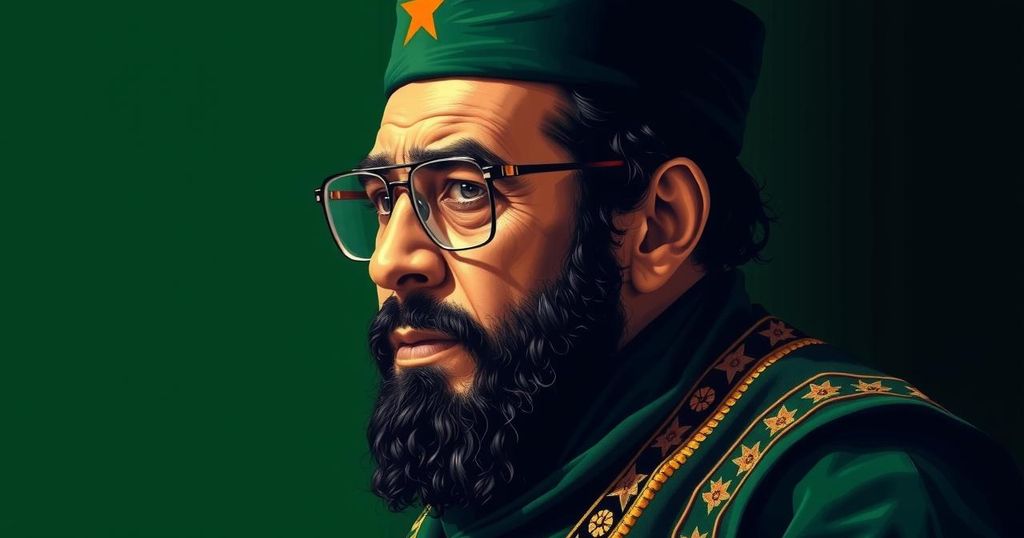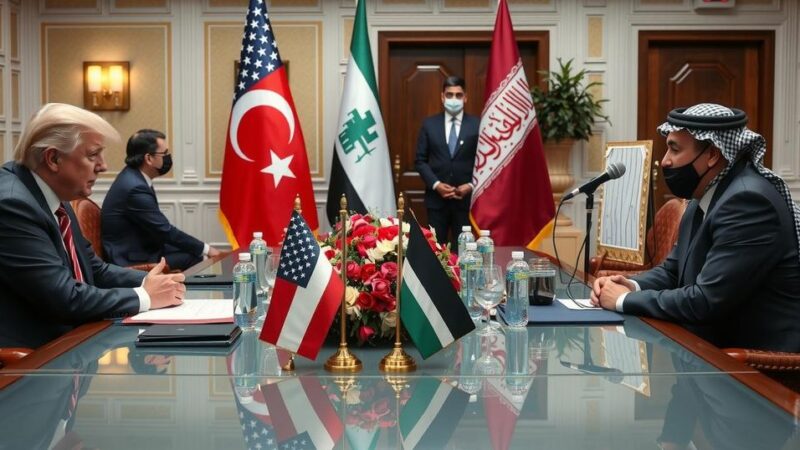Muammar al-Qaddafi, the de facto leader of Libya from 1969 until his assassination in 2011, came to power through a military coup, implementing controversial socialist policies and facing international sanctions due to acts of terrorism. The Arab Spring ignited widespread protests in 2011, leading to his overthrow and death at the hands of rebel forces.
Muammar al-Qaddafi, born in 1942 near Sirte, Libya, served as the de facto leader of Libya from 1969 until his removal in 2011. He came to power through a military coup that overthrew King Idris I. Qaddafi implemented extensive changes in Libya, including the expulsion of foreign military bases and the nationalization of natural resources, notably oil. His policies, encapsulated in his book “The Green Book,” promoted a form of Islamic socialism and advocated a revolutionary ideology that sought Arab unity, although these aims often met with failure. Qaddafi’s foreign relations were marked by erratic behavior, including support for various revolutionary factions globally and involvement in acts of terrorism, most infamously, the Lockerbie bombing in 1988. This incident led to severe international sanctions against Libya, though Qaddafi later sought rehabilitation on the world stage by giving up weapons programs and cooperating with international authorities. As the political landscape in the Middle East evolved in 2011 with anti-government protests, Qaddafi faced an overwhelming uprising in Libya. His regime’s violent suppression of the protests led to widespread condemnation, including sanctions from the United Nations and the United States. Despite temporary military successes, opposition forces gained momentum, ultimately leading to NATO intervention to protect civilians. In August 2011, rebel forces captured Tripoli, further diminishing Qaddafi’s control. Prolonged resistance ensued until he was ultimately killed by rebel forces on October 20, marking the end of his forty-two-year rule. Qaddafi’s legacy is complex, characterized by his ambitions for Arab nationalism and socialism, coupled with authoritarian measures and international isolation.
Muammar al-Qaddafi emerged as a significant figure in Libyan and Arab politics. Born to a Bedouin family, his early life shaped his revolutionary ideology. After seizing power in a bloodless coup in 1969, Qaddafi transformed Libya’s political landscape, advocating for socialism and pan-Arab unity while ousting foreign influences. His controversial practices involving terrorism and military interventions in neighboring countries attracted global criticism, ultimately leading to political isolation. Following regional upheavals in 2011, his decades of rule faced mass protests that escalated into armed conflict, prompting an international response that culminated in his demise.
The life and leadership of Muammar al-Qaddafi reveal a narrative rife with contradictions. From his rise as a revolutionary leader to his downfall amid civil strife, Qaddafi’s legacy is one of ambition thwarted by conflict and opposition. His governance style emphasized authoritarianism despite occasional rhetoric of popular democracy, and his foreign policy oscillated between revolutionary ideals and tumultuous encounters with the global community. The events surrounding his rule serve as a cautionary tale about the complexities of political power in a volatile region.
Original Source: www.britannica.com







